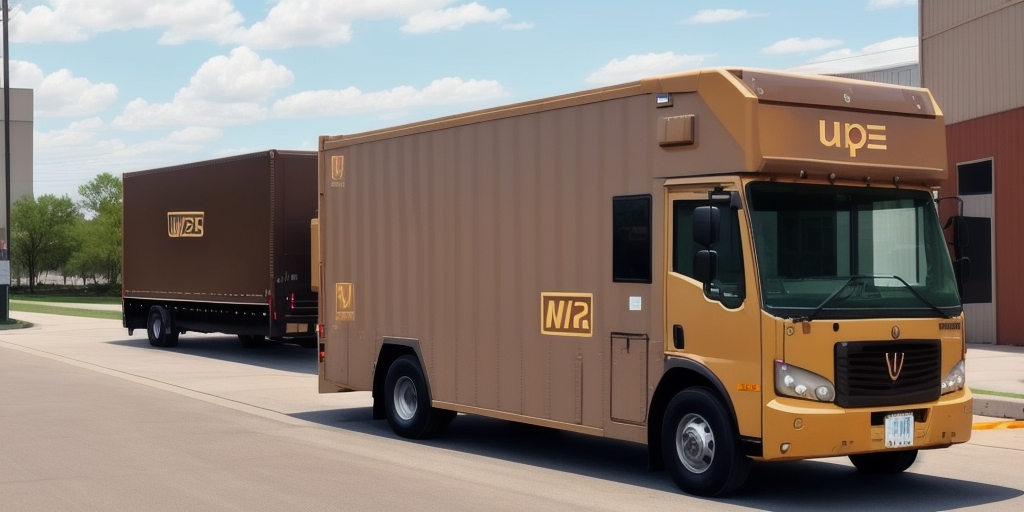Understanding Shipping Exceptions with FedEx
Shipping packages and documents can be stressful, especially when unexpected issues arise. One of the primary concerns for shippers is shipping exceptions. These exceptions can lead to significant delays in delivery times and additional costs. In this article, we delve deep into understanding shipping exceptions with FedEx and provide actionable tips to help you avoid them.
What Are Shipping Exceptions?
Shipping exceptions occur when a package or document is temporarily or permanently unable to be delivered as planned. Common reasons include:
- Incorrect recipient or sender address
- Missing or incomplete shipping information
- Adverse weather conditions
- Mishandling of packages
When a FedEx shipment encounters an issue, it triggers a shipping exception scan that flags the package's status. FedEx then initiates steps to resolve the problem. Depending on the severity, the package may be rerouted or returned to the sender, potentially incurring additional fees.
To minimize the risk of shipping exceptions, it's crucial to verify all shipping information before dispatching a package and ensure proper packaging and labeling. In case of an exception, promptly contacting FedEx can help resolve the issue and reduce delays.
Common Reasons for Shipping Exceptions
Several factors can lead to shipping exceptions. Understanding these can help you take preventive measures:
- Incorrect Addresses: Typos or incomplete addresses can delay delivery.
- Invalid Account Numbers: Errors in billing information may halt shipments.
- Incomplete Customs Documentation: For international shipments, missing paperwork can cause delays.
- Exceeding Weight or Size Limits: Packages that are too heavy or oversized may not be accepted.
- Poor Packaging or Labeling: Inadequate protection can lead to damage or misrouting.
- Prohibited or Restricted Items: Shipping forbidden goods results in shipment termination.
- Human Errors: Mistakes by the shipper or FedEx employees can cause exceptions.
While some exceptions, like weather-related delays, are beyond your control, proactive measures can significantly reduce their impact. Always stay informed by tracking your shipments and maintaining open communication with FedEx and the recipient.
How to Avoid Shipping Exceptions with FedEx
Implementing the following strategies can help you minimize the risk of shipping exceptions:
- Verify Shipping Information: Double-check the recipient's address and contact details. Utilize FedEx's address verification services if uncertain.
- Accurate Account Details: Ensure your FedEx account number and billing information are correct.
- Complete Customs Documentation: For international shipments, provide all necessary customs forms and invoices.
- Adhere to Size and Weight Guidelines: Familiarize yourself with FedEx's [size and weight limits](https://www.shipscience.com/fedex-size-weight) to ensure compliance.
- Proper Packaging: Use high-quality packaging materials and clearly label your packages.
- Avoid Prohibited Items: Review FedEx's [list of restricted and prohibited items](https://www.shipscience.com/fedex-prohibited-items) to ensure compliance.
- Use Authorized Services: Rely on trusted FedEx services to reduce human errors.
Additionally, maintaining accurate shipping documentation, including labels and invoices, is essential. Utilize FedEx's tracking tools, such as email and text alerts, to monitor your shipment's status and address any issues promptly by contacting FedEx Customer Service.
FedEx's Shipping Exception Policies Explained
FedEx has established comprehensive policies to manage shipping exceptions effectively:
- Real-Time Shipment Tracking: Access up-to-date information about your shipment through FedEx's tracking tools.
- Proactive Communication: FedEx notifies customers of any shipping exceptions and outlines steps to expedite delivery or issue refunds if the delay is due to FedEx's error.
- Customs Assistance: For shipments requiring customs clearance, FedEx communicates the necessary documents and duties to ensure smooth processing.
For detailed information, refer to FedEx's official shipping policies.
What to Do If Your Shipment Encounters a Shipping Exception
If your shipment faces a shipping exception, follow these steps to resolve the issue efficiently:
- Identify the Cause: Determine the reason behind the exception by reviewing the tracking information.
- Contact FedEx Customer Service: Reach out with your package tracking number to get detailed assistance.
- Provide Necessary Information: Be prepared to supply any additional documentation or details required to rectify the issue.
- Monitor Your Shipment: Use FedEx's tracking tools to stay updated on the resolution progress.
For time-sensitive shipments, immediate action can help prevent further delays. In cases where the exception is due to FedEx's error, you may be eligible for compensation or a refund. However, compensation policies vary based on the situation, so it's essential to discuss this directly with customer service.
Resolving Shipping Exceptions with FedEx Customer Service
FedEx's customer service team is equipped to help you navigate and resolve shipping exceptions. Here's how they can assist:
- Guidance and Support: Customer service representatives can provide step-by-step instructions to address specific issues.
- Document Assistance: They can help you prepare and submit any required documents for customs or other purposes.
- Expedited Solutions: FedEx can implement measures to accelerate your shipment's delivery when possible.
- Preventative Advice: Receive recommendations on how to avoid similar exceptions in future shipments.
FedEx's customer service is available 24/7, ensuring that you can receive assistance whenever you encounter a shipping issue. Visit the FedEx Contact Page to reach out.
The Importance of Accurate Shipment Information
Providing precise shipment information is paramount in avoiding shipping exceptions. Inaccurate details, such as wrong addresses or shipment values, can lead to delays, additional costs, and customer dissatisfaction. Accurate information ensures that FedEx can process and deliver your packages efficiently, maintaining a positive reputation for your business.
Moreover, accurate shipment data fosters trust with your customers. Transparent and timely communication regarding shipment status enhances customer experience, leading to repeat business and positive reviews. Conversely, errors can erode trust and harm your business's reputation.
Always prioritize the accuracy of shipment information to ensure smooth and successful shipping operations.
Tips for Packaging and Labeling to Prevent Shipping Exceptions
Proper packaging and labeling are critical in preventing shipping exceptions. Follow these tips to ensure your packages are well-prepared:
- Use Quality Packaging Materials: Select sturdy boxes and padding materials to protect your items during transit.
- Ensure a Tight Fit: Prevent items from shifting by securing them properly within the package.
- Clearly Label Packages: Use legible labels that accurately identify the recipient and sender.
- Avoid Reusing Labels: New shipments should have fresh labels to prevent confusion.
- Follow FedEx's Packaging Guidelines: Adhere to FedEx's [packaging standards](https://www.shipscience.com/fedex-packaging) to ensure compliance.
For fragile items, use additional cushioning like bubble wrap or packing peanuts and mark the package as "Fragile" to alert handlers. For perishable goods, use appropriate insulation and temperature-controlled packaging to maintain product integrity.
Understanding Restricted Items and Prohibited Materials in FedEx Shipments
FedEx restricts and prohibits certain items to comply with legal regulations and ensure safe shipping. It's essential to familiarize yourself with these restrictions to avoid shipping exceptions:
- Prohibited Items: These cannot be shipped under any circumstances and include explosives, firearms, hazardous materials, and live animals.
- Restricted Items: These require special packaging, labeling, or documentation. Examples include perishable goods, lithium batteries, and certain chemicals.
Before shipping, consult FedEx's comprehensive [list of prohibited and restricted items](https://www.shipscience.com/fedex-restricted-items) to ensure compliance. Shipping prohibited items can result in shipment termination and potential legal consequences.
Conclusion
Shipping can be a complex process, and shipping exceptions add an extra layer of stress. By understanding the common causes of shipping exceptions with FedEx and implementing preventive measures—such as verifying shipment information, adhering to packaging guidelines, and using accurate documentation—you can significantly reduce the likelihood of encountering issues.
Additionally, staying informed about FedEx's shipping policies and leveraging their customer service resources can help you navigate and resolve any exceptions efficiently. Prioritizing accuracy and compliance not only ensures timely deliveries but also fosters trust and satisfaction among your customers.
Remember, proactive management of your shipping processes is key to minimizing disruptions and maintaining a reliable shipping experience with FedEx.








